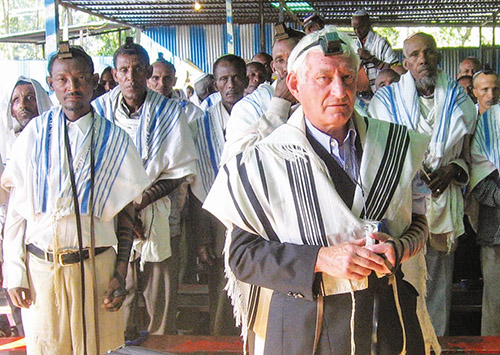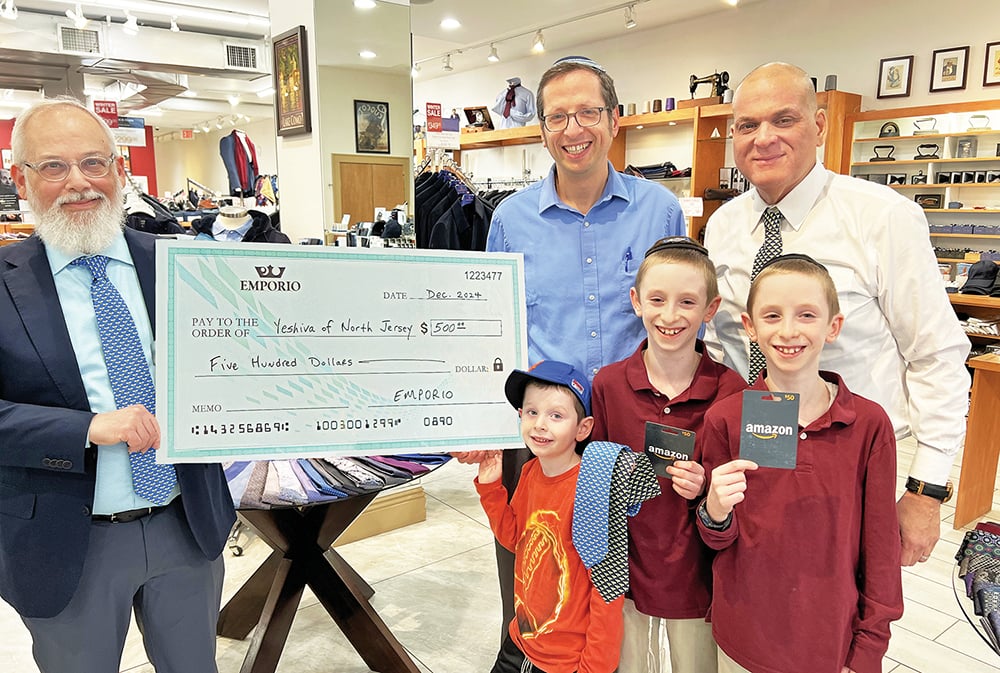
No individual has examined more newborn babies in the Jewish state than Professor Arthur Eidelman, known as the founding father of neonatal medicine in Israel. A graduate of Einstein and Yale schools of medicine, Eidelman knew from a young age that he wanted to pursue pediatric medicine and live in Israel.
But after being among the first 100 students to receive certification in the United States for neonatology, or newborn care, he canceled his aliyah plans due to the lack of career options in Israel, where this specialty did not yet exist. It was a phone call in 1977, two years after he received his certification, that would change the course of his life.
The director of Jerusalem’s Shaare Zedek Hospital at the time, Professor David Mayer, had big visions to redesign the old hospital and modernize its technology. He approached Eidelman with his plans—in the words of Eidelman, “to build something special for the care of newborns”—and invited him to set up Israel’s first neonatology department. One year later, Eidelman left his home in Riverdale with his wife and four young children and began his journey to revolutionize the entire approach of newborn care in Israel.
According to Eidelman, at that time the technology available for newborn care in Israel, like in the United States, was minimal. Beyond the technology, the attitude did not exist. The prevailing culture was that newborns do not have the same value as other human beings. Intensive care units designated for newborns were nonexistent but were part of pediatric units that had their own priorities. There were no respirators or needles designed for newborns. Furthermore, a sick newborn would not receive a separate medical chart but was an appendix to the mother’s chart, reflecting an attitude that the newborn did not exist on its own. “I went to the head of the hospital and said, ‘I will not continue to work here unless every baby who is born healthy, let alone sick, has his own independent chart,’” shared Eidelman.
Beyond the training programs, technology and knowledge that he brought to Israel, Eidelman succeeded in changing the entire system to place newborn care on the same level as the treatment for all other human beings. Today, the neonatology unit that he designed at Shaare Zedek is one of the most advanced in the world. He also served as a consultant to the Ministry of Health on all issues relating to neonatology, lectured at Hebrew University and Ben-Gurion University, and wrote Israel’s medical examination in neonatology. Before he retired in 2009, he served as chairman of pediatrics at Shaare Zedek Hospital.
Though Israel’s neonatology care is world-class, boasting state-of-the-art technology and an elite knowledge base, it lacks in personnel. Neonatology departments—particularly the intensive care units—are understaffed, which means that nurses and doctors must work harder and longer hours. Eidelman hopes that the government will make the necessary reforms in this area. “It’s about saying this is a priority in the system,” he said, “and the money needs to be allocated.”
In addition to his work in Israel, Eidelman has consulted in other countries on newborn care. He conducted a study on the nutrition of newborns and children awaiting aliyah in the Jewish community in Gondar, Ethiopia, and designed a feeding program in order to ensure the health of the young in this impoverished community.
Eidelman estimates that he has examined or treated half-million babies during his 50-year career in Israel. He has stood under the chuppah at marriage ceremonies of babies he treated and was even the sandek at the brit milah of the grandchild of a patient he treated many years ago. It is moments like these that Eidelman said are worth everything.
On Nov. 27, Eidelman was among seven olim who were awarded the 2022 Sylvan Adams Nefesh B’Nefesh Bonei Zion Prize, in recognition of his important contributions to the field of Israeli science and medicine. “It’s the ultimate satisfaction, the ultimate sense of contributing something that made a difference,” he shared in a video recorded for the event.
Though formally retired, Eidelman continues to see patients. He also serves as editor-in-chief of an international medical journal and plays tennis twice a week. Throughout his prolific career, Eidelman has always viewed his work as a mission, explaining that, “our tradition says physicians are nothing less than shaliachs [messengers].” The founding father of neonatal medicine in Israel who has cared for and healed so many newborns has certainly lived up to this calling.
Alisa Bodner is a Fair Lawn native who immigrated to Israel a decade ago. She is a nonprofit management professional who enjoys writing in her free time.













